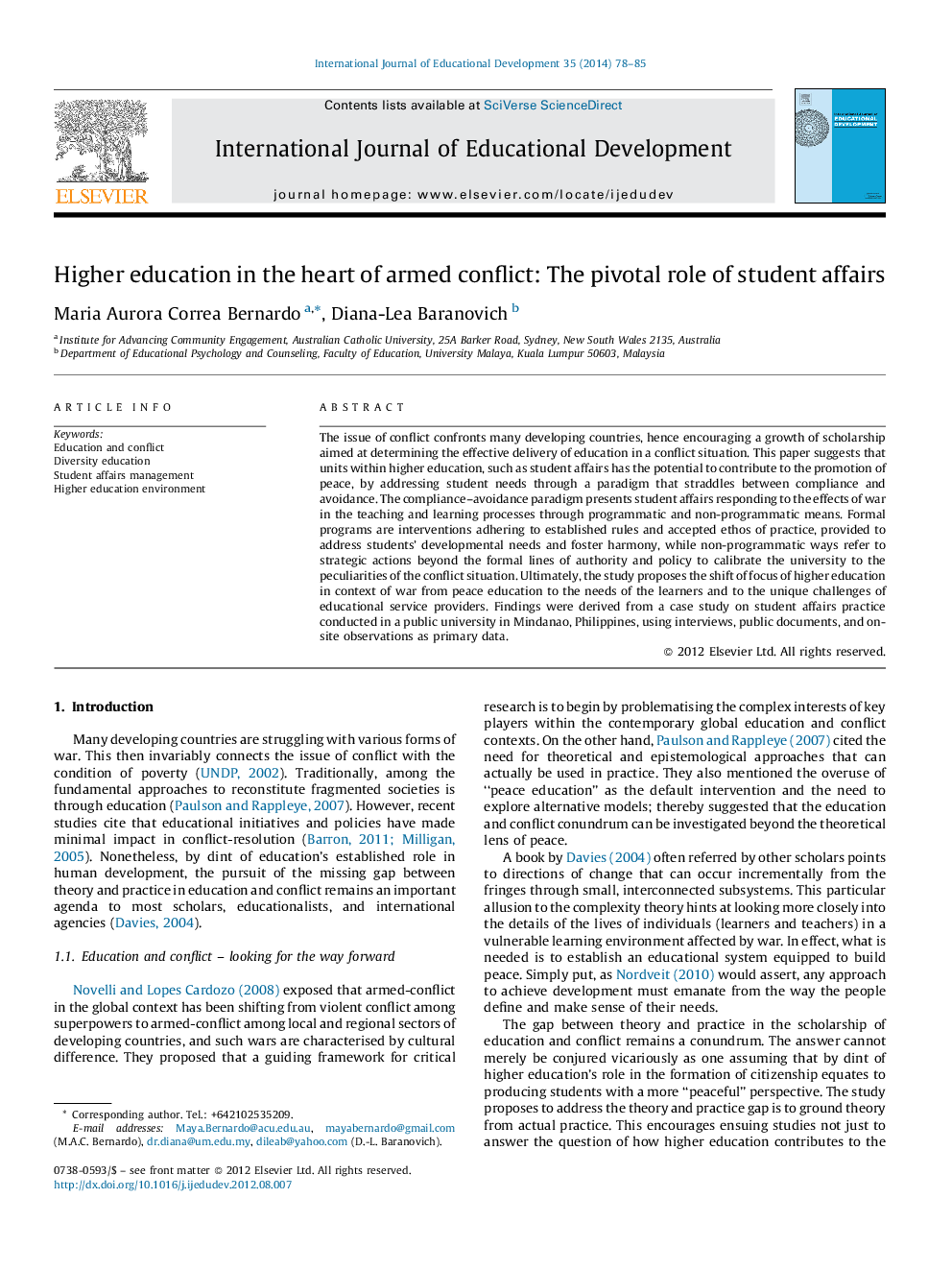| Article ID | Journal | Published Year | Pages | File Type |
|---|---|---|---|---|
| 356177 | International Journal of Educational Development | 2014 | 8 Pages |
The issue of conflict confronts many developing countries, hence encouraging a growth of scholarship aimed at determining the effective delivery of education in a conflict situation. This paper suggests that units within higher education, such as student affairs has the potential to contribute to the promotion of peace, by addressing student needs through a paradigm that straddles between compliance and avoidance. The compliance–avoidance paradigm presents student affairs responding to the effects of war in the teaching and learning processes through programmatic and non-programmatic means. Formal programs are interventions adhering to established rules and accepted ethos of practice, provided to address students’ developmental needs and foster harmony, while non-programmatic ways refer to strategic actions beyond the formal lines of authority and policy to calibrate the university to the peculiarities of the conflict situation. Ultimately, the study proposes the shift of focus of higher education in context of war from peace education to the needs of the learners and to the unique challenges of educational service providers. Findings were derived from a case study on student affairs practice conducted in a public university in Mindanao, Philippines, using interviews, public documents, and on-site observations as primary data.
► The study purports to generate an understanding of the dynamics of higher education in a situation of war. ► Student affairs in conflict situation operates through a paradigm of compliance–avoidance. ► The compliance–avoidance paradigm is manifested through programmatic and non-programmatic interventions of student affairs. ► From peace education, future studies need to shift focus on the unique needs of the learners and the unique challenges of educational providers.
